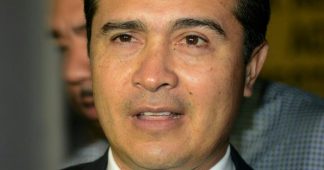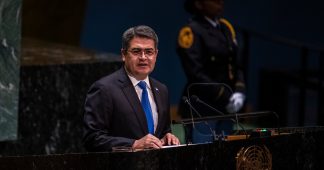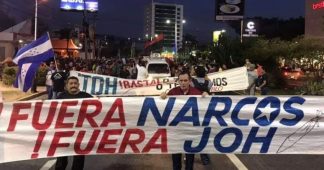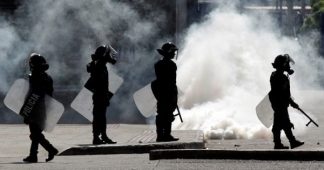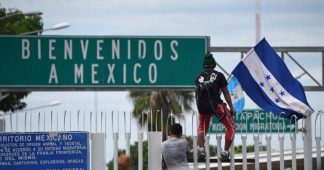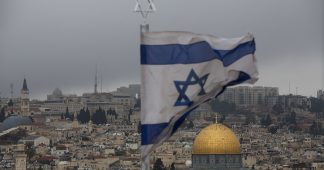As we approach 11 years since the US-backed right-wing coup in Honduras, resistance to neoliberalism continues, writes KEN LIVINGSTONE
IN 2009, I was one of the co-founders of the Emergency Committee Against the Coup in Honduras and have tried to keep up to speed with developments and with the resistance movements there ever since. Despite the repression — including killings — the resistance has faced, it has continued.
Many of those opposing the coup regime may have felt vindicated when it was recently reported that US prosecutors have alleged in a major court case that the Honduran President Juan Orlando Hernandez was a co-conspirator in his brother’s cocaine trafficking ring.
Hernandez’s brother, Tony, was convicted in 2019 of trafficking huge cocaine shipments to the US, making use of his brother’s political connections. In the process, million-dollar bribes were allegedly used to finance Hernandez’s electoral campaigns.
Ahead of the trial of alleged Honduran drug trafficker Geovanny Fuentes, US prosecutors submitted in court documents that President Hernandez said he wanted to shove the “drugs right up the noses of the gringos” and to make the US Drug Enforcement Administration (DEA) “think that Honduras was fighting drug trafficking,” all the while putting his brother in control of drug activities.
Hernandez has denied any complicity in drug trafficking, but the case poses a problem for the new US administration. Previous US governments’ support for the coup regime has in part been predicated on his apparent commitment to taking on drug trafficking in the region after pushing through a wave of extraditions.
A succession of right-wing governments has corruptly held onto office in Honduras with significant US diplomatic and financial support since the 2009 coup that toppled former president Manuel Zelaya.
Zelaya’s progressive programme had included reforms to the minimum wage and the distribution of the land, support for sexual and reproductive rights and LGBTQ communities and changes to address the poverty and violence that drive migration.
The next presidential elections are scheduled for November, with Hernandez able to stand after the supreme court overturned a ban on re-election despite his win in 2017 which was heavily disputed at the time.
Meanwhile, assassinations of environmental and human rights activists in Honduras are persisting as the country continues to suffer from organised crime and corruption amid the Covid-19 pandemic.
Martin Pandy, the leader of the Corozal community with a majority of Garifuna Indigenous people, was recently murdered by gunmen, along with two other people.
Nearly two years ago four members of Ofraneh, the Afro-Indigenous Garifuna Peoples’ organisation of Honduras, were kidnapped by heavily armed gunmen wearing national police uniforms and badges. Ofraneh has been resisting illegal incursions by banana and oil palm companies, among others and more recently land grabs for housing and tourist developments.
Despite an international campaign, the Honduran authorities have provided no answers and done nothing to control the criminal gangs attacking the Indigenous territories.
Organised crime and corruption are deep-seated problems that sustain a deeply unequal society in Honduras. Its powerful and corrupt elites benefit enormously from the rapacious development of the country’s natural resources. Thirty-eight per cent of the urban population lives below the poverty line, rising to over 60 per cent in rural areas.
The pandemic and the effect of two hurricanes have wreaked economic devastation on the economy which is expected to contract by a record 8 per cent.
This will push yet more people into unemployment and poverty, which are the main drivers, followed by crime and violence, for caravans of Honduran migrants moving northwards in search of a new home in the US.
But many of the migrants are getting no further than neighbouring Guatemala where the army and police are using tear gas and riot shields to block their path. Nearly 3,000 migrants have already been deported back to Honduras. Human rights organisations have demanded that rights to asylum and the dignity of migrants should be respected.
Unlike Trump, who pursued a clampdown on migrants from Mexico and the Northern Triangle of Honduras, Guatemala and El Salvador, President Biden has said he will fund a four-year, $4 billion aid package to the Northern Triangle countries to address the root causes of migration.
But the time lag between implementation and results means that it will have little effect on migrants’ immediate plans this spring and summer.
Biden also has proposals to tackle corruption in the region, through a new office in the Treasury Department’s Office of Foreign Asset Control and extra Justice and Treasury Department staff in US embassies.
He has also suggested creating a regional anti-corruption commission along the lines of a previously successful initiative in Guatemala.
However, President Hernandez’s record inspires no confidence that such a drive will be successful. His government failed in January 2020 to reach an agreement with the Organisation of American States (OAS) to renew the mandate of the anti-graft Mission to Support the Fight against Corruption.
More recently, a legal case brought over an extensive corruption scheme involving $12 million of public funds embezzled for political ends is being dismantled by a Honduran court.
Since the overthrow of the progressive Zelaya government, right-wing governments in Honduras have held onto office with the US’s support, despite widespread dissent and protest in the country and international condemnation of Hernandez’s 2017 fraudulent election win.
The British government has also been complicit in helping these governments to survive. When Boris Johnson was Foreign Secretary, the government sanctioned sales of telecommunications interception equipment to Honduras which is suspected of having been used in surveillance activity against organisations and individuals protesting against Honduras’s illegitimate and repressive regime.
It is these pillars of support for the Honduran government and its political and economic elites which must be removed — and the people of Honduras supported in resuming the long journey towards social justice.
Sign and the petition against such equipment sales to Honduras at www.mstar.link/Honduras21.
Follow Ken Livingstone on Twitter @Ken4London and Facebook @KenLivingstoneOfficia
Published at morningstaronline.co.uk
